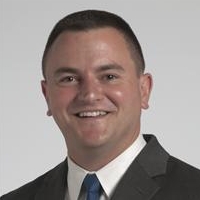My husband has had 2 3-week cycles of RVD and his M protein has decreased from 3.3 to 0.4, very good news!
However, he is feeling like a ping pong ball as he bounces from one specialist to another with health issues related to multiple myeloma -- soft tissue tumor near his spine will be treated with radiation (10 treatments in 2 weeks), increased parathyroid hormone to be evaluated by an endocrinologist, and amyloidosis to be evaluated by a nephrologist.
Questions
1. Is juggling specialists typical for a multiple myeloma patient?
2. I understand husband's first 2 issues but amyloidosis confuses me. I know it has been discussed here but when I search the topic, there are no results. Is anyone else dealing with a nephrologist for amyloidosis? It appears that it is treated with the same drugs as multiple myeloma. Is it necessary to know which organs are affected? Are amyloid proteins the same as myeloma proteins?
AnnieB
 Forums
Forums
Re: Amyloidosis and other complications
Hi Annie, I am sorry to hear that your husband has both amyloidosis and multiple myeloma, but it's good to know that he is responding well to treatment. If you type 'amyloidosis' into the search box on this site, a number of articles will appear on the topic of amyloidosis. There is a type of amyloidosis that occurs in conjunction with multiple myeloma, and light chain proteins , which also occur with multiple myeloma, tend to accumulate in organs such as the kidney. I think that would be why you are seeing a nephrologist. Hope that helps.
-

Nancy Shamanna - Name: Nancy Shamanna
- Who do you know with myeloma?: Self and others too
- When were you/they diagnosed?: July 2009
Re: Amyloidosis and other complications
Good question.
Amyloidosis (of the light or heavy chain type) can occur with or without multiple myeloma. The problem in amyloid is that not only is there a malignant population of plasma cells, the cells are making an immunoglobulin (antibody) that is defective and ACCUMULATES/DEPOSITS in various tissues. Commonly amyloid can affect the kidney but also the nerves, heart, skin, and liver but any organ can be affected. The amyloid accumulation in the tissues causes severe organ damage and can lead to organ failure.
It helps to have specialists evaluate for amyloidosis but I feel it is important that a hematologist or oncologist familiar with amyloidosis be the person in charge of disease management. There are plenty of specialists in whatever field that may not know much about amyloidosis management.
Amyloidosis (of the light or heavy chain type) can occur with or without multiple myeloma. The problem in amyloid is that not only is there a malignant population of plasma cells, the cells are making an immunoglobulin (antibody) that is defective and ACCUMULATES/DEPOSITS in various tissues. Commonly amyloid can affect the kidney but also the nerves, heart, skin, and liver but any organ can be affected. The amyloid accumulation in the tissues causes severe organ damage and can lead to organ failure.
It helps to have specialists evaluate for amyloidosis but I feel it is important that a hematologist or oncologist familiar with amyloidosis be the person in charge of disease management. There are plenty of specialists in whatever field that may not know much about amyloidosis management.
-

Dr. Jason Valent - Name: Jason Valent, M.D.
Beacon Medical Advisor
Re: Amyloidosis and other complications
I have amyloidosis and my affected organ is the kidney. I was diagnosed in July of 2013 by a nephrologist through a kidney biopsy. I do still see her every three months or so, but my main treatment is through the oncologist to which I whom I was referred.
When we first found out, my husband did research and contacted Stanford immediately. When we met the oncologist locally here, he agreed to consult with the Stanford team, which is a little over an hour away from where we are, as they have a lot more experience with this disease. They have an amyloid center, and have doctors specializing in the different organs affected. They work together. I have been evaluated by the cardiologist there as well.
There are various amyloid specialists around the country. Boston University and Mayo are a couple of them. I would highly recommend getting in touch with doctors who specialize in this.
When we first found out, my husband did research and contacted Stanford immediately. When we met the oncologist locally here, he agreed to consult with the Stanford team, which is a little over an hour away from where we are, as they have a lot more experience with this disease. They have an amyloid center, and have doctors specializing in the different organs affected. They work together. I have been evaluated by the cardiologist there as well.
There are various amyloid specialists around the country. Boston University and Mayo are a couple of them. I would highly recommend getting in touch with doctors who specialize in this.
-
KimT - Name: Kim Tank
- Who do you know with myeloma?: Me
- When were you/they diagnosed?: July 2013
- Age at diagnosis: 53
Re: Amyloidosis and other complications
Thank you Nancy, Dr. Valent, and Kimt for your responses to my questions about amyloidosis. My husband's 24 hour urine test showed a 2.25 gm level of protein, thus,his hem/onc referral to a nephrologist for evaluation. Test will be repeated this week. I will definitely check to see if his doctor treats amyloidosis or if we need to see another multiple myeloma/amyloidosis specialist.
AnnieB
AnnieB
5 posts
• Page 1 of 1
